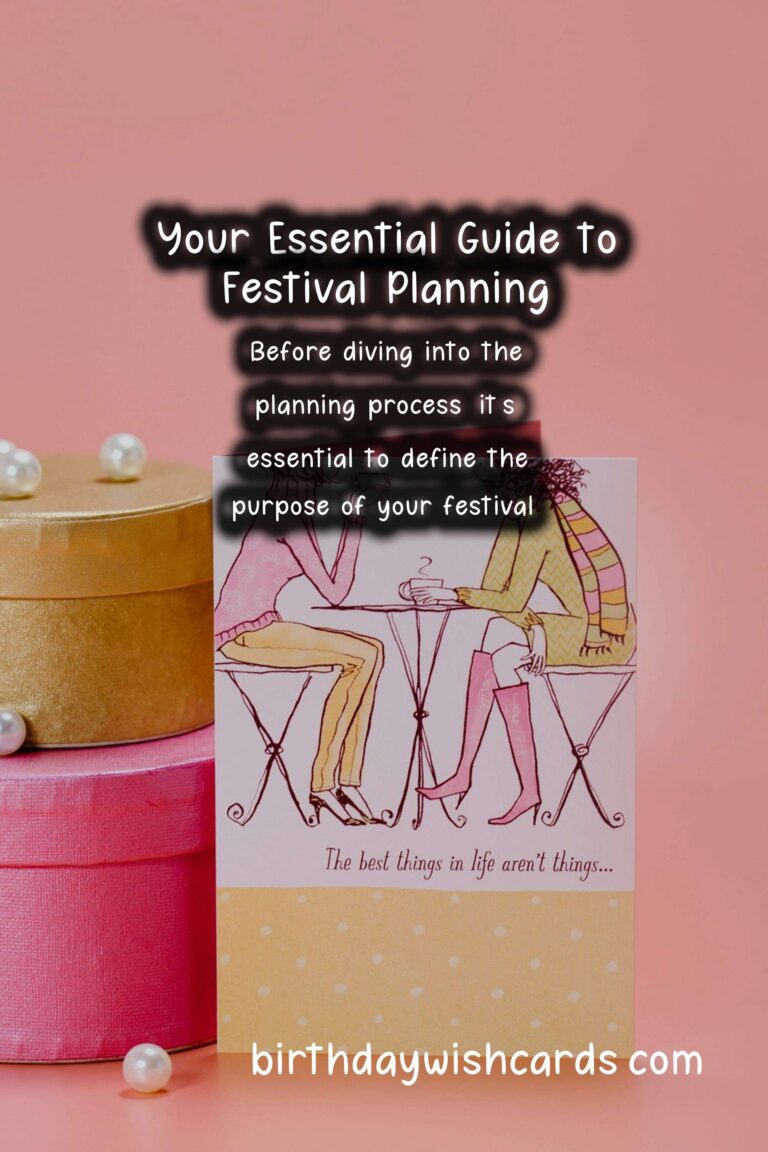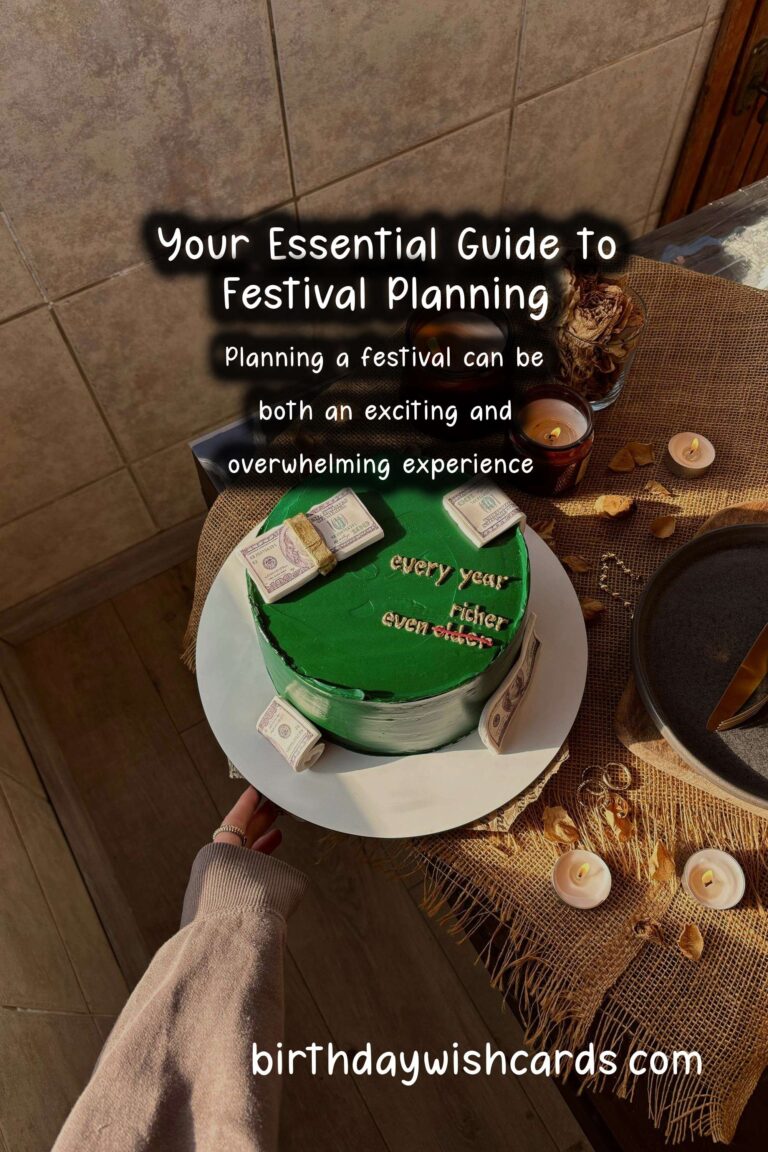
Planning a festival can be both an exciting and overwhelming experience. With the plethora of details to consider, from logistics to theme selection, it’s important to have a structured approach. This guide will walk you through everything you need to know to create a memorable festival.
Understanding Your Festival’s Purpose
Before diving into the planning process, it’s essential to define the purpose of your festival. Are you focusing on community engagement, cultural celebration, or perhaps raising awareness for a specific cause? By clarifying your goals, you will create a focused and cohesive experience for your attendees.
Choosing the Right Theme
The theme of your festival plays a crucial role in shaping the overall experience. Consider themes that resonate with your target audience, whether it’s a seasonal celebration, a musical journey, or an arts and crafts expo. Engage your community by conducting a survey to gather input.
Setting a Budget
A well-defined budget is a cornerstone of successful festival planning. Start by outlining your expected expenses, which may include venue rental, permits, entertainment, marketing, and amenities. Be realistic about your revenue streams and seek sponsors or partnerships to help offset costs.
Choosing the Right Location
The venue can make or break your festival. Look for a location that aligns with your theme and is accessible to your audience. Consider factors like parking availability, nearby amenities, and the capacity to accommodate your expected crowd. Outdoor settings often enhance the festivity but come with specific considerations like weather and permits.
Permits and Regulations
Before making any arrangements, familiarize yourself with local regulations. Obtain necessary permits for hosting a public event, which may include health and safety regulations, noise ordinances, and insurance requirements. Failure to adhere to these regulations can lead to unwanted disruptions.
Curating Engaging Entertainment
Entertainment is the heart of any festival. Depending on your theme, consider various options including live music, dance performances, art installations, and interactive workshops. Ensure your lineup is diverse and caters to all age groups to enhance the festival’s appeal.
Food and Beverage Options
No festival is complete without delicious food and drinks. Collaborate with local vendors to offer a range of culinary delights that align with your theme. Consider dietary restrictions and environmental impact while selecting food options, such as local and sustainable choices.
Marketing Your Festival
Effective marketing is critical for attracting attendees. Utilize social media, local newspapers, and community boards to spread the word. Create engaging content that highlights your festival’s unique features and encourages early ticket purchases. A dedicated website with all relevant information can serve as a hub for your audience.
Engaging With Your Audience
Audience engagement goes beyond marketing. Consider creating an interactive online community where attendees can share their excitement. Utilize polls or contests to encourage participation and collect valuable feedback before and after the event.
Logistics and Staffing
Having a reliable team is essential for smooth operations. Recruit volunteers and staff members to manage various aspects of the event, including ticketing, information booths, and security. Provide adequate training and clear instructions to streamline the festival experience.
Planning for Safety
Safety should be a top priority during your planning. Have a clear plan in place to deal with emergencies, including medical support, evacuation plans, and security personnel. Ensure that your team is well-informed and prepared for unexpected situations.
Post-Festival Follow-Up
After the festival concludes, take time to evaluate the event’s success. Gather feedback from attendees, staff, and volunteers to identify areas for improvement. This insight will be invaluable for future planning. Also, consider sending thank-you notes to sponsors and participants to foster ongoing relationships.
Conclusion
Planning a modern festival may seem daunting, but with precise strategy and execution, it can be an incredibly rewarding experience. By clearly defining your goals, engaging with the community, and focusing on every detail, you can create a festival that is memorable and cherished by all. Start today, and make your festival day truly special!
Planning a festival can be both an exciting and overwhelming experience. Before diving into the planning process, it’s essential to define the purpose of your festival.
#FestivalPlanning #EventManagement

